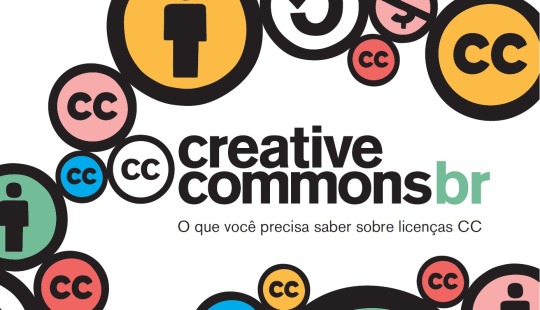#rss 2016
Explore tagged Tumblr posts
Text

#emmerdale#robert sugden#myedgifs#rr050416#rr16#(may 2016)#rsag#rsfo#rsblue#rso#rss*#rsh#gif#rob and lawrence#home farm
10 notes
·
View notes
Text
Attentati di Bruxelles del 2016: parte il maxi-processo
Al via il processo per gli attacchi jihadisti che nel 2016 provocarono più di trenta vittime a Bruxelles. Oltre mille le parti civili. Tra gli imputati anche il francese Salah Abdeslam, unico sopravvissuto del commando, già coinvolto negli attentati di Parigi dell'anno precedente
0 notes
Text
April 1, 2024: vocabulary, Safia Elhillo
vocabulary Safia Elhillo
fact:
the arabic word هواء (hawa) means wind thearabicwordهوى (hawa) means love
test: (multiple choice) abdelhalim said you left me holding wind in my hands or abdelhalim said you left me holding love in my hands
abdelhalim was left empty or abdelhalim was left full
fairouz said o wind, take me to my country or fairouz said o love, take me to my country
fairouz is looking for vehicle or fairouz is looking for fuel
oum kalthoum said where the wind stops her ships, we stop ours or oum kalthoum said where love stops her ships, we stop ours
oum kalthoum is stuck or oum kalthoum is home
--
It's here, it's here; happy National Poetry Month! In case you forgot: I'll be sharing a poem every day in April.
Want it as an email? Sign up here and it'll be whisked to your inbox by a team of digital carrier pigeons.
Or follow along on Tumblr, Twitter, or RSS. (Want to see it mirrored elsewhere? [Instagram, Substack, Bluesky, etc] Please let me know!)
==
This is, uh, the 20th year of this project??? See many years of past selections by browsing the archives or exploring the poems sent on today's date in:
2023: Reasons to Live Through the Apocalypse, Nikita Gill 2022: New Year, Kate Baer 2021: Instructions on Not Giving Up, Ada Limón 2020: Motto, Bertolt Brecht 2019: Separation, W.S. Merwin 2018: Good Bones, Maggie Smith 2017: Better Days, A.F. Moritz 2016: Jenny Kiss’d Me, Leigh Hunt 2015: The Night House, Billy Collins 2014: Tim Riggins Speaks of Waterfalls, Nico Alvarado 2013: Nan Hardwicke Turns Into a Hare, Wendy Pratt 2012: A Short History of the Apple, Dorianne Laux 2011: New York Poem, Terrance Hayes 2010: On Wanting to Tell [ ] about a Girl Eating Fish Eyes, Mary Szybist 2009: A Little Tooth, Thomas Lux 2008: The Sciences Sing a Lullabye, Albert Goldbarth 2007: Elegy of Fortinbras, Zbigniew Herbert 2006: When Leather is a Whip, by Martin Espada 2005: Parents, William Meredith
Thank you for being here!
54 notes
·
View notes
Text
Freeing Palestine is India's fight
I've seen lots of posts about how Western countries and their populations should be concerned for stopping the genocide in Palestine but Indians are involved in this as well.
India has a HUGE Islamophobia problem, from the day India became what it is, this country exists the way it does through conflict regarding religious majorities and it is a problem we must acknowledge.
Collective punishment has often been carried out indiscriminately against Muslims in India- Muslim people's houses in Madhya Pradesh have been demolished without warning. This has also happened in Uttar Pradesh and in 2023, Haryana(300 businesses and homes). These were all normal innocent civilians who had proper legal paperwork showing their purchase and ownership of their home and land, but the police did not care. In many of these instances the police stood by and were involved in demolition and all of these were under BJP-majority and ruled areas. The recent Ram Mandir was built on the demolished land of Babri Masjid(it was built in the 14th century before India as it was even a THING, its destruction & demolition on the claim that it was Ram's birth place is unfair). Hate crimes against Muslims run amok and there are multiple cases of violence against Muslims in India.
PM Modi of the BJP party has been consistent in maintaining positive relations with Benjamin Netanyahu and the occupying force of Israel. A majority of the military equipment for India comes from Israel, and India has constantly been neutral in UN council meetings when decisions regarding Israel are brought up. A spyware called Pegasus, developed by the occupying force of Israel was used to surveil politicians, journalists, activists etc severely breaching right to privacy and threatening freedom of speech.
Worse; India has been using the Israeli strategy of colonizing Palestine with Kashmir. Jammu & Kashmir is a union territory which basically means they are allowed to function independently on most fronts but India has been seeking to integrate J&K into itself and has been extremely hostile to its Muslim citizens and are currently intensifying their occupation efforts. There have been consistent internet and communication blackouts since 2018 and it is STILL ongoing.
India invited Israeli officials to Kashmir to open 'Centers of Excellence' which are supposedly for agricultural innovation but everyone in J&K are concerned and see it as India taking an opportunity to intensify its occupation with Israeli help.
Speaking on condition of anonymity, several Kashmiris told Middle East Eye the Israeli agriculture hubs would deepen India's occupation in the region and accelerate its settler-colonial project. "Earlier, we would draw the parallels between Kashmir and Palestine or India's intimate alliance with Israel. But now they are bringing Israel to the Valley in the form of these institutions - which will be "agro-oriented" in name - but we all know that Israel will physically help India in Kashmir to turn it into a proper Palestine," a Kashmiri academic based in Istanbul told Middle East Eye.
In 2016 Coalition of Civil Society said there are more than 8000 'disappearances' of people in J&K. There are mass graves with over 2000 bodies being found with these unlawful activities being attributed to the Indian Security Forces. That's just scratching the surface of decades of violence and human rights violations enacted by India.
BJP is not shy about its ties to the RSS and promotes Hindutva(I've seen people citing the literal meaning of the word as evidence that it is harmless but the word is a label given to an embraced by extreme right-wing groups who are open about their Islamaphobia. Meaning of the word becomes pointless when actions speak otherwise).
India is an occupying force on J&K, it's suppressing Muslims, demonizing them and further marginalizing them in the name of 'Hinduism'. It buys from Israel and endorses them. As Indians, it is key that we do whatever we can to stop the genocide because we are unwittingly being used to fuel this and are being radicalized to hate on our neighbors, the people we share our land and history with.
Even outside of the ways in which the current government is shamelessly supporting Israel, India's history is rife with colonization. The British had occupied us, forced us into fighting each other, into prioritizing meaningless differences to suppress each other. We were once starved by occupying forces, violated, killed. Our land is also covered in blood shed by colonization.
What are we doing if we don't speak up? If we don't stop this? Do not follow the propaganda conflating extreme right-wing ideologies with the identity of being Indian. Don't buy into the idea that India is "for Hindus", we are so ridiculously diverse, there are 100s of languages and religions in this country.
Free Jammu & Kashmir, free Palestine, stop Islamophobia.
#palestine#free gaza#desiblr#desi tumblr#gaza strip#free palestine#islamphobia#I have no special patriotism for my country but if that's the identity i'm forced into i'm going to stand up for Palestine#I am aware that Kashmiri Hindus have also experienced multiple hate crimes and were forced out and it had been classified as ethnic cleansi#but the fact that happened should only fuel you more to STOP the occupation & violence against muslims in J&K#absolutely nothing justifies genocide- nothing
39 notes
·
View notes
Text
Last Monday of the Week 2024-03-25
Can't tell if this is allergies or if I'm sick because spring is in the air
Listening: I have been listening to The Layover podcast, the behind the scenes podcast for Jet Lag The Game. I only got into Jet Lag pretty recently because I had Nebula anyway and saw it come up. Great show, both because the premise is great (carefully designed games incorporating travel on the scale of countries) and because they can actually edit this incredibly difficult pile of footage into something readable.
The Behind The Scenes is an interesting mix of talk about the on-the-ground situation of playing the game and the filmmaking that goes on after the fact, there's some cool insight into how and why they edit the way they do and it shows why it works so well.
I think you have to have Nebula to listen to the podcast? It does just spit out an RSS feed if you ask nicely though. Thank you podcasts.
Watching: Actually watched The Gay And Wondrous Life of Caleb Gallo, the video series that launched like two dozen reaction images.
youtube
It's funny, it's a well put together indie comedy series. You've probably seen most of the really standout bits already even if you don't know it already but it is worth watching as a time capsule of web comedy, it's less than two hours long all told.
Reading: Started Glory In The Thunder by 0xabad1dea. I don't know what her real name is. I've had GITT in my ebooks library forever, 0xabad1dea is the main reason I got on twitter back in like 2016 (her and a couple other software blogs) and is why my Fediverse feed is still like a quarter security researchers by weight. She's probably one of the most well known static analysis researchers in the world.
Anyway Glory In The Thunder is a gaslamp-ish fantasy, although leaning very fantasy on the gaslamps. Very teenage characters which is whiplash but only because it's been a moment. Lots of very loud characters who announce themselves and their intentions, some fun seven dimensional politics going on, and a lot of jumping back and forth in the histories of the various gods who are constantly hanging around in the plot.
I think @shieldfoss has bugged me to read this before so you'll be glad to know that I am now.
I like this, I'm about halfway through. It's easy to keep track of despite having enough fantasy names to choke a horse, although I should really stop worrying about that, I've read the Shadowdance series you really have to try to beat that one. It's also a free book, you can get it at @gloryinthethunder.
Playing: Got a VR headset. Fidgeting with said headset. Figured out how to do wireless linked VR from Linux and Windows which is good, I should have all the kinks worked out, I'll have to see how I square the onboard capabilities of the Quest 2 with having a PC and fast WiFi.
Making: Finally run through enough smaller prints on the new hotend to feel confident running off the final endcap, so that's done. The parts of the 3D printed NAS case are complete, and I have started my first pass sanding which is going to take a while because PETG is very slippery. Once that's sanded I'll take it in to the shared workshop and run through some primer layers and some paint.
Tools and Equipment: Flat network cable is a godsend if you're running it in open air in a house. Absolutely useless for pulling through walls or running in conduit, and completely bereft of shielding, but having a flat cord that can press up against frames and sideboards really does make it all neater. I ran flat cat6 for all of this.
10 notes
·
View notes
Text
Listening to Lysenko's Ghost this morning and increasingly thinking that what I really want out of social media is a full sized blog: there is absolutely an essay in me about my reactions to the book in terms of both scientific history, what we know about epigenetics now that we didn't know in 2016, behavioral plasticity specifically, and the importance of mechanism and common gardens in selection.
I also want to write about Cuban bloodhounds, about this thought I have about endorphin release in different dogs, about the way that we conceptualize and frame behavior. I want to write about Waddington and developmental canalization and how environmental perturbation can create new phenotypes by revealing new dimensions of genetic variation. I want to use that blog to revive what I did with Writing From Factor X back in the day: about a thousand words, once a week, plus or minus a small links collection of whatever I've been reading that is interesting. Only this time instead of asexuality I want to write about whatever comes to mind, which for me is likely to be a mixture of genetics, neuroscience, behavior, plasticity, metabolism, behavior, dog culture, and endocrine signaling, with a smatter of disability theory and queerness.
And I want it to be federated: something with both an RSS feed and the ability to be commented on and absorbed into the growing fediverse, so it's relatively accessible for as many people as possible in this time of social media instability and rapid change. I also want it to be easily readable without any kind of account and free to read. (I'm not above contemplating a Patreon model where people can individually or collectively commission topics, but that's obviously putting the cart well before the horse.)
Old school blogging, weblog style.
I gotta think about some things, first:
what the hell I'd call such a thing; I thought about ten years ago that if I came back to blogging I'd call it Taproot, but I'm not remotely enough of a botanist to feel the name fits these days
where I would host such a thing to meet my desires for federation as well as desktop and mobile
how I can avoid having to think about web design and presentation as much as possible
(disgusting) rebuilding what passes for my professional website, including that 2017 viral essay and other pieces of writing I think are worth saving and referencing
I'm just having a lot of thoughts, and I've always thought best by writing. Might not be a bad idea to give myself some structure about it.
9 notes
·
View notes
Note
hey there klaudia. I have one of those questions that's sort of googleable but also sort of hard to google because really I just want someone's opinion, and as I did get your anti-doomscroller emails, and vaguely recall you did/do some sort of media or journalism thing, and I've been following you since idk the dawn of time or 2016, somewhere in there, so you're sort of someone I know, I thought I'd ask you. Anyway. I do not read the news. I need this to change. I know I should read (not watch, I simply cannot) the news regularly. Specifically for my life I need to know about international politics, wars and the threat thereof and such, but knowing about US domestic stuff is also good. And I need to not get my information from destiel screencaps/my mother worriedly explaining her Fox News misinformation to me. genuinely somehow I am an adult now and I don't know where to do this. I used to get the NYT daily email for a few years but idk I've heard so much against the NYT now I'm not sure I can go subscribe to them. is there any chance you've got a source to recommend? a newspaper or journal? I just get so hung up on where to get my information I can't even start. I know that in theory I would read critically and can compare whatever it is I do read regularly against other sources. But it's just hard to find a starting point so. anyway if you have one I'd appreciate it. If not no worries, as I said this should be googleable I'm just overwhelmed. you just seem like a good person to ask but for all I know I'm way off base there lol, sorry I've followed you a long time but I know like two facts about you, you're just a cool and consistent feature of my dash to me.
whew this is a complicated question but you're going in the right direction (not watching televised news and staying the FUCK away from the NYT are a good start). my best advice, is to get to know local papers/magazines near you. they may be owned by a larger corporate parent (hence the dwindling of alt weeklies and independent sources), but if you follow them on each of your preferred social media (or if they have a newsletter, or an RSS feed or apple news or something you can do that too), they should cover both aggregated world/national news and local news. also look at your local public radio station - public radio, like the entire nonprofit industrial complex, has its own issues as well, but it's another good place to start.
the other best place to start is the library. your library should have electronic resources (aka access to press reader apps and such) that allow you to look at the latest articles and magazine editions, etc for free. you can get a feel for what news sources you like and don't like that way. any library system usually has a large selection, both electronically, and in person (and a lot of them subscribe to the same apps).
the way to make this sustainable is that as you browse, if there are articles (or if its radio, reported stories) that you particularly enjoy, IE: they were rigorous and thorough, had credible sources, did good service journalism, etc, find that journalist/producer and follow their social media. most journalists, regrettably, are on twitter, some have 0 social media presence, and many have their own newsletters. since journalism is a sketchy industry rn, following the reporters and producers themselves is a good way to keep trusted professionals in your feeds rather than the news brands that exploit them.
another thing to keep in mind - make sure you aren't just consuming US news sources. yes, it is harder to know what is credible for cultures that are not your own, but US-based (and in general Western based) large news sources really do not cover international shit well unless there are reporters with very specific beats (and even then they may come with their own cultural issues). there are also a lot of major news sources that just aggregate from the newswires (the AP, Reuters, etc), and sometimes I don't love them either. be vigilant when looking for international news.
all this being said, don't stress yourself out over this. it took a career in journalism (that i'm now thankfully out of), too much time on twitter, a degree in political communication, and lots and LOTS of unlearning for me to find sources I trust and build feeds. but even now it can be hard. and no, this is not easily google-able on purpose, bc google is now just made of who has the most money to pay them for ads and an expert in SEO to get higher ranking.
my biggest advice is to build SKILLS for yourself. learn to recognize biases that major outlets might have (if a news source just wholesale quotes cops or "authorities" only, if they scaremonger about China, if they have an opinion section full of questionable takes for clicks). learn to spot clickbait and rage bait, question how data is presented, etc.
also while i do think supporting independent journalism is good, major outlets like the NYT or corporate owned shit do not need your help, despite all the pleas they put on their websites. get an adblocker (on desktop, ublock origin, on mobile iOS the free versions of Disconnect's apps are great - if a website on either isnt working properly just turn it off and refresh, then turn it back on), because the ads in news articles are ATROCIOUS. get a paywall bypass extension (i use Bypass Paywalls Clean which has versions for every browser, and on iOS i use this shortcut), because you should never have to even make a free account and give these fuckers your email either.
i hope this helps at all!!!!
54 notes
·
View notes
Text
Who is your birthday oshi? ~Week of June 11~

It's that time of the week again.
Full birthdays & anniversaries list under the cut.
Birthdays & Anniversaries ~Week of June 11~








The following members, ex-members, and single releases have birthdays, anniversaries, and a release (!) this week.
June 11
High-King - C\C (Cinderella\Complex) (2008)
June 12
Goto Yuki (ex-THE Possible / Ciao Bella Cinquetti; 30)
Murota Mizuki (ex-ANGERME; 25)
Fujimoto Miki - Sotto Kuchizukete Gyutto Dakishimete (2002)
Juice=Juice - Samidare Bijo ga Samidareru (2013; general release)
Morning Musume '19 - Jinsei Blues / Seishun Night (2019)
June 13
Matsuura Aya - Tropica~l Koishite~ru (2001)
THE Possible featuring Okada Robin Shoko and Goto Yuki - Kingyo Sukui to Hanabi Taikai (2007)
THE Possible featuring Hashimoto Aina and Akiyama Yurika - Natsu no Tropical Musume. (2007)
Morning Musume '18 - Are you Happy? / A gonna (2018)
June 14
Sekine Azusa (Up Up Girls (Kakko Kari); 27)
Kobushi Factory - Shalala! Yareru Hazu sa / Ee ja nai ka Ninja nai ka (2017)
ANGERME - Ai no Kedamono / Dousousei (2023)
June 15
Arihara Kanna (ex-C-ute; 30)
Kamimura Rena (Hello Pro Kenshuusei Unit '23; 14)
Morning Musume - Only you (2011)
Noto Arisa - Oyasumiboshi (2016)
June 16
Tashiro Sumire (OCHA NORMA; 18)
Tanpopo - Tanpopo (Single Version) (1999)
Lilpri - Little♡Princess☆Pri! (2010)
June 17
Tsuji Nozomi (ex-Morning Musume; 36)
Satoda Mai with Gouda Kazoku - Don't leave me (2009)
Happy birthday/anniversary/release week!
Subscribe to the main blog | Social Media + RSS Links | M3 Grand Prix page
#Goto Yuki#Murota Mizuki#Sekine Azusa#Arihara Kanna#Kamimura Rena#Tashiro Sumire#Tsuji Nozomi#THE Possible#Ciao Bella Cinquetti#ANGERME#Up Up Girls (Kakko Kari)#C-ute#Hello Pro Kenshuusei Unit '23#OCHA NORMA#Morning Musume#High-King#Fujimoto Miki#Juice=Juice#Matsuura Aya#Kobushi Factory#Noto Arisa#Tanpopo#Lilpri#Satoda Mai#Birthday Oshi Poll
17 notes
·
View notes
Note
Hi I had kind of a general webcomic question: so like around 2012-2015ish I remember webcomics' websites used to have clickable banner art for other webcomics and made banners you could add to your own site. Before getting my Webtoon acct in 2016, I found most webcomics that way. But I noticed these days, most of the same sites have gotten rid of the banners. I was wondering if you happened to know why this might've been?
Well, I think it's because back then a lot of webcomics had their own websites, often built and hosted by the comic creators themselves, and people used to use web browsers more to, well, browse the internet. It was more common to share and explore other comics via these Links pages. I also found so many webcomics just clicking through these banners after banners.
But these days webcomics are more concentrated on platforms, and these platforms, and social media, and the internet in general, are used on apps on mobile devices a lot of the time. And that has simplified and streamlined the Webcomic Experience, and there isn't really any space for these banners in these apps. People share their favorite webcomics on their social media instead.
It's common now that if a webcomic moves to it's own website from a comic platform, a part of the readers won't follow, because it's inconvenient to leave the app and read the comic on a browser (and you can't save the webcomic to your library of other webcomics and keep track of the updates (and figuring out what RSS feed is and how it works is too complicated). It's sad, but I've heard many creators tell about such comments.
I moved Transfusions from SmackJeeves before this bigger app-ification happened, and SJ isn't even a thing anymore. My comics would probably have bigger readership if they were on these apps, but I love that my comics have their own home that have their own vibes, they are well optimized for mobile too, and @hiveworks fam has been lovely and helpful with everything, so I'm not complaining! :)
I have seen a bit of a shift among the creators though. Many are tired of how social media and the webcomic platforms kind of make it harder to reach new (or even the current) readers, and there has been some talk about going back to creating your own websites, newsletters and web circles, and yes, the banners too! But I'm not sure if it's just reaching for nostalgia or is it something that the bigger audience would actually follow and use...
48 notes
·
View notes
Text
RSS project list;
- The Family (animated short series)
- The Attention (short drama film)
- The Film Directing Alphabet
- Faith; The Unholy Trinity fan film
- //
- Cruella retelling story
- prison experiment retelling story
- //
- FNAF fan film
- //
- Nonsense in real life setting (2x)
- Of spiders and Flies
- Actor's game
- //
Ryan Reviews project list; (@ryaureviews)
- The collector (2009)
- Grave Encounters
- The Neighbor (2016)
- The Collection (2012)
- Shawshank redemption
Unhinged Vros;
- Garten of BanBan (ch1)
- RE 7 //part 1+2//
- Poppy Playtime (ch1)
- OnlyCans; Hot & Steamy
- Trapped with Jester
2 notes
·
View notes
Text

#emmerdale#robert sugden#myedgifs#rr050416#rr16#(may 2016)#home farm#rso#rsblue#rss*#rsf#rob and lawrence#gif
10 notes
·
View notes
Text
2024
Mein Medien-Menü: Zwölf Jahre später
Im Februar 2012 habe ich für Christoph Kochs Reihe "Mein Medien-Menü" beschrieben, wie meine Mediennutzung damals aussah. Diese Serie ist einer der Gründe, warum es das Techniktagebuch gibt. Bis November 2014 sind insgesamt 89 Folgen im Blog von Christoph Koch erschienen. Danach zog das Medienmenü um zu Krautreporter, wo es so aussieht, als seien bis ungefähr 2017 noch mal ziemlich viele Folgen veröffentlicht worden. Ob man die gesammelt irgendwo lesen kann und ob es nach 2017 noch weiterging, weiß ich nicht, weil ein Krautreporter-Abo nicht zu meiner Mediennutzung gehört. (Ohne besondere Gründe, im ersten Krautreporterjahr war ich Unterstützerin. Ich erinnere mich vage an Unzufriedenheit, weshalb ich es danach nicht mehr war. Aber die Details sind leider undokumentiert geblieben.)
Ich habe lange nicht mehr an diesen Bericht gedacht und sehe heute noch mal nach, wie das eigentlich 2012 war und was sich geändert hat.
"Goodreads ist nicht besonders überzeugend, ich kenne nur wenige Menschen, die es nutzen, und die Buchempfehlungen dort sind nur unwesentlich besser als bei Amazon. Aber ich finde es sehr hilfreich, um eine realistische Vorstellung von meinem Leseverhalten zu bekommen. Bis ich damit anfing, hielt ich mich immer noch für denselben Leser wie 1995."
Ich war damals noch ein Leser und keine Leserin. Mit dem generischen Maskulinum habe ich erst viel später aufgehört. Im Techniktagebuch ist zu sehen, wann das passiert ist, meiner Erinnerung nach vielleicht 2018? Irgendwann sehe ich nach und dann steht es hier genauer. Goodreads fand ich zwischen damals und jetzt sehr überzeugend. Ich kenne zwar immer noch nur wenige Menschen, die es nutzen, und in die automatischen Buchempfehlungen habe ich schon lange nicht mehr reingesehen. Aber ich habe dort in den letzten Jahren sehr viele Rezensionen gelesen und das war der Hauptweg, auf dem ich zu neuen Büchern gefunden habe. Allerdings versuche ich gerade, mich (wegen der Amazon-Zugehörigkeit) von Goodreads zu lösen zugunsten von StoryGraph. Da läuft aber gerade erst der Umzug meiner Daten und ich kann noch nichts dazu sagen.
"Meine Papierbücher habe ich in den letzten paar Jahren mit Hilfe des Berliner Büchertischs stark reduziert, von ungefähr zwölf mehrreihig gefüllten Billyregalen bin ich jetzt runter auf sieben halbvolle."
Im Moment sind es vier ganz volle, davon zwei mehrreihig gefüllt. 2019 waren es auch schon nur vier. Was mit den drei anderen passiert ist, weiß ich nicht mehr. Falls es Zuwachs gegeben hat, ist das unfreiwillig passiert, durch eigene Belegexemplare, ungefragt zugeschickte Bücher und Bücher, die ich auf Papier kaufen musste, weil ich sie für die Arbeit brauchte und nicht auf einem digitalen Weg beschaffen konnte. Ich lese jetzt aber viel mehr Bücher als 2012.
Dann geht es im Text von 2012 einen Absatz lang um RSS-Feedreader. Ich habe damals noch den Google Reader genutzt, den Google anderthalb Jahre später eingestellt hat. Mit Feedly, dem Tool, mit dem ich ihn ab Mitte 2013 zu ersetzen versuchte, bin ich nie so richtig warm geworden, er ist 2016 aus meinem Leben verschwunden. Ich habe ihn nicht ersetzt und lebe seitdem feedreaderlos.
"... das, was ich im Netz lese, speist sich jetzt ungefähr (geraten und nicht gemessen, kann also auch ganz anders sein) zur Hälfte aus dem Feedreader und zur Hälfte aus dem Bekanntenkreis via Google+, Twitter und Facebook. "
"Netz" sage ich nicht mehr, seit ich 2021 erfahren habe, dass es ein altmodisches Wort für Internet ist. Ich dachte bis dahin, es sei umgekehrt.
"Ein oder zwei Jahre lang hatte ich mir für die wichtigsten Feeds eine Weiterleitung nach Twitter gebastelt (via Yahoo Pipes und Twitterfeed), aber seit es Google+ gibt, nutze ich Twitter viel weniger und sehe deshalb auch diese Weiterleitung kaum mehr."
Yahoo Pipes! Das war wirklich schön und ich vermisse es heute noch manchmal. Es wurde 2015 eingestellt. Man konnte damit, so ähnlich wie jetzt mit Zapier, andere Internetdinge zusammenstecken, aber mit einer schönen grafischen Oberfläche. Bei Google+ war ich 2011 und offenbar auch noch Anfang 2012 sehr aktiv, aber irgendwann bald danach war es wieder vorbei. Warum, weiß ich nicht mehr, es ist im Techniktagebuch nicht dokumentiert. In meiner Erinnerung wurde Google+ kurz nach dem Start wieder stillgelegt, aber das scheint nicht zu stimmen, in der Wikipedia steht: Schließung 2019. Ich bin danach zu Twitter zurückgekehrt.
Von den Blogs, die mir damals wichtig waren, gibt es ein paar noch, sie sind mir aber unsympathisch geworden (Marginal Revolution, Less Wrong, Overcoming Bias). Andere gibt es nicht mehr (Stefan Niggemeiers Blog, Penelope Trunk). Ich glaube, dass das nicht weiter besorgniserregend ist, die meisten Blogs haben eine begrenzte Lebenszeit aus inhaltlichen wie aus Verfügbare-Lebenszeit-Gründen und es wachsen ja auch wieder neue nach. Im Überschneidungsbereich von "existiert noch" und "wir haben uns nicht weltanschaulich entfremdet, glaube ich", liegt nur ein einziger der erwähnten Blogs: O'Reilly Radar. Ich lese es trotzdem nie. Das hat auch wieder mit dem Verschwinden des Google Readers zu tun. Ich lese wahrscheinlich immer noch so viel in Blogs wie früher, aber nicht mehr regelmäßig in denselben, sondern eben die Beiträge, die mir bis 2022 Twitter heranspülte und seit meinem Umzug Mastodon. Ich merke mir dann nicht, in welchem Blog die standen, und könnte keine Blognamen nennen. Facebook erwähne ich 2012 noch, 2015 habe ich das Facebook-Browsertab geschlossen und 2017 die App vom Handy gelöscht.
Zeitschriften mit der Post bekam ich 2012 noch mehrere, zum Teil wegen Vereinsmitgliedschaften und zum Teil, weil ich sie abonniert hatte. Eins der Abos habe ich gleich nach der Dokumentation im Medien-Menü-Beitrag gekündigt, ein anderes endete etwas später von allein, und die Mitgliedszeitschriften haben sich in den letzten Jahren entweder selbst auf nur-noch-digital umgestellt oder ich habe darum gebeten, nichts mehr auf Papier zu bekommen. Außerdem wird meine Post seit mehreren Jahren direkt an Nathalie weitergeleitet, die sich um meine Papierverwaltung kümmert.
2024 gehört zur finanziellen Seite meines Medien-Menüs, dass ich einige Leute regelmäßig unterstütze bei Patreon, Steady und ähnlichen Plattformen. Ich müsste das mal in einem gesonderten Beitrag genauer aufschreiben, jedenfalls ist es im Moment der Hauptkanal, auf dem Geld von mir zu Kulturschaffenden fließt. Die Newsletter oder Videos, die zu manchen dieser Abos gehören, schaue ich mir aber eigentlich nie an. Es geht mehr ums Prinzip, ich möchte, dass diese Leute weiter Videos machen, Bücher schreiben oder was sie halt so tun.
"Radio habe ich seit den 80er Jahren nicht mehr gehört (traumatische Schulbus-Erlebnisse mit Bayern 3). Eine Tageszeitung hatte ich zuletzt um 1990 im Abonnement. Ich habe aufgehört, fernzusehen, als im deutschen Kabel das britische MTV Europe durch den deutschen Ableger ersetzt wurde, das muss so um 1995 herum gewesen sein. Über Hörbücher und Podcasts weiß ich nichts, ich schlafe aus technischen Gründen beim Zuhören immer sofort ein."
Daran hat sich seit 2012 wenig geändert. Ich war viel im Haushalt meiner Mutter, und dort wird jeden Tag wenigstens eine Stunde Radio gehört (BR Heimat zwischen 22:00 und 23:00). Außerdem ist es mir gelungen, mittelgroße Teile des "Drinnies"-Podcasts zu hören. Eine Änderung meines Mediennutzungsverhaltens sehe ich darin aber nicht, das eine ist Zufall, das andere eine Ausnahme.
Video kommt im Text von 2012 gar nicht vor. Hier hat sich mehr geändert, 2016 habe ich eingesehen, wozu YouTube gut ist, und inzwischen nutze ich es oft, allerdings vor allem in der kleinen Vorschau-Ansicht auf dem Handy, die ungefähr 6x4 cm groß ist, und ohne Ton. Theoretisch folge ich dort zwar ein paar Leuten aus den Bereichen Handwerk (Schreinerei, Metallbearbeitung, Rohrreinigung) und Schlittenhundehaltung, praktisch mache ich davon aber so gut wie nie Gebrauch, es sind Höflichkeits-Abos zur Erfreuung der Youtuber*innen. Ich bin nur da, wenn ich was Bestimmtes suche und gucke dann vielleicht noch ein paar von den Dingen, die YouTube mir vorschlägt. Dabei bin ich inzwischen besser darin geworden, den Vorschlägen zu widerstehen, weil mir YouTube immer gern Katastrophen und Unglücke zeigen möchte und ich aber wirklich nicht noch mehr über scheußliche Tode beim Höhlentauchen wissen will. Lieber würde ich das vorhandene Wissen darüber wieder aus meinem Kopf löschen lassen. Was mir in meinem Medienmenü 2024 fehlt, ist ein Lösch-YouTube zur Entfernung von Informationen.
(Kathrin Passig)
#Mein Medien-Menü#Christoph Koch#Kathrin Passig#Radio#YouTube#Podcast#Buch#Papier#Newsletter#Crowdfunding#Medienverhalten#Krautreporter#Facebook#Mastodon#Twitter#Goodreads#RSS#Feedreader#Google Reader#Leseverhalten
4 notes
·
View notes
Text
April 1, 2023: Reasons to Live Through the Apocalypse, Nikita Gill
Reasons to Live Through the Apocalypse Nikita Gill Sunrises. People you have still to meet and laugh with. Songs about love, peace, anger, and revolution. Walks in the woods. The smile you exchange with a stranger when you experience beauty accidentally together. Butterflies. Seeing your grandpar- ents again. the moon in all her forms, whether half or full. Dogs. Birthdays and half-birthdays. That feeling of floating in love. Watching birds eat from bird feeders. The waves of happiness that follow the end of sadness. Brown eyes. Watching a boat cross an empty sea. Sunsets. Dipping your feet in the river. Balconies. Cake. The wind in your face when you roll the car window down an open highway. Falling asleep to the sound of a steady heartbeat. Warm cups of tea on cold days. Hugs. Night skies. Art museums. Books filled with everything you do not yet know. Long conversations. Long-lost friends. Poetry.
==
‘bout that time, eh, chaps?! Happy National Poetry Month once again.
As a reminder, you’ve signed up to receive a poem every day in April. Anyone can do the same right here. Or follow along on Twitter, Tumblr, or RSS. Hooray, poetry.
==
Many(!!) years of Aprils predate this one. You can browse the archives by jumping to the poem sent on today��s date in:
2022: New Year, Kate Baer 2021: Instructions on Not Giving Up, Ada Limón 2020: Motto, Bertolt Brecht 2019: Separation, W.S. Merwin 2018: Good Bones, Maggie Smith 2017: Better Days, A.F. Moritz 2016: Jenny Kiss’d Me, Leigh Hunt 2015: The Night House, Billy Collins 2014: Tim Riggins Speaks of Waterfalls, Nico Alvarado 2013: Nan Hardwicke Turns Into a Hare, Wendy Pratt 2012: A Short History of the Apple, Dorianne Laux 2011: New York Poem, Terrance Hayes 2010: On Wanting to Tell [ ] about a Girl Eating Fish Eyes, Mary Szybist 2009: A Little Tooth, Thomas Lux 2008: The Sciences Sing a Lullabye, Albert Goldbarth 2007: Elegy of Fortinbras, Zbigniew Herbert 2006: When Leather is a Whip, by Martin Espada 2005: Parents, William Meredith
(Insider secret: you can usually find my top tier favs by looking at what was sent on April 1 and April 30.)
Thanks for being here, friends.
60 notes
·
View notes
Text

Top, Shirin Neshat, The Fury, 2022, Two-channel video installation, HD video monochrome. Exhibition at Gladstone Gallery, January 26 - March 4, 2023. Via. Bottom, Hans Haacke, News, 1969/2008, RSS newsfeed, paper, and printer. Part of the exhibition Coded: Art Enters the Computer Age, 1952–1982 at LACMA, February 12 - July 2, 2023. Via.
For the 'Prospect 69' exhibition in the Kunsthalle, Düsseldorf, Haacke drew up a concept he elucidated as follows: 'A telex machine installed in the Düsseldorf Kunsthalle prints all the news communicated by the German press agency DPA. The printouts will be put on display for further reading one day after being communicated, and on the third day the rolls of paper will be labelled and dated, then stored in plexiglass containers.' Via.
--
Baudrillard, by contrast, suggests we are no longer immersed in the society of spectacle that is governed by images shaping reality but in the ‘contagion of the virtual’. I would argue that images can no longer be explained or apprehended using the mirror formula to offer a clear distinction between reality and phantasy. Their overwhelming presence in mass media, virtual reality and social networks shapes identities and the perception of the self. However, individuals are not merely passive consumers of these images. They have also become active spectators, interacting with images and using them to perform their identity.
Basia Sliwinska, from The Female Body in the Looking-Glass: Contemporary Art, Aesthetics and Genderland, 2016. Via.
--
Around this magical time of the year, Brad Troemel used to post an Instagram advent calendar of his most popular memes. He doesn’t do that any longer but does regularly post carousels of found stories that are a brilliant portrait of our present and a rich resource. I also enjoyed, and was moved drunkenly to tears one night by, the closing montage of his “Cloutbombing” report, made by Jak Ritger, perhaps because I appear in it myself. I also enjoyed Crisis Acting’s carousels of found videos, which form a more uplifting image of humanity and the world – it’s amazing that they’re able to find and put these out every day – and their longer edits with music too; I like this one ascendant, completely illuminated cut of Hyperballad, made I don’t know by whom; and another cut of an old German comedian lying in a shallow stream while Aphex Twin plays, which I’ll probably never find again; and this video of Chinese musicians, found via Sean Tatol; and these guys that play ambience on the street across Lower Manhattan; and this clip from Connor Clarke, with Ice Spice.
Dean Kissick, 👍 Video carousels, for Spike Tops and Flops 2023.
6 notes
·
View notes
Text
It's time for Beginnings, the podcast where writer and performer Andy Beckerman talks to the comedians, writers, filmmakers and musicians he admires about their earliest creative experiences and the numerous ways in which a creative life can unfold.

On today's episode, I talk to comics creator and TV writer Ben Edlund. While still in high school, Ben began developing the satirical superhero The Tick, who became the mascot of the New England Comics newsletter. After a production error led to them needing a new title quickly, the New England Comics folks invited Ben to create a series around the character. The Tick has had numerous comic runs, as well as a cartoon in the 1990s and two live action series, the most recent of which ran on Amazon Prime from 2016-2019. In addition to his comics work and creating The Tick TV shows, Ben has also written on over a dozen other shows, some of which include The Venture Bros., Firefly, Angel, Clone Wars and many others!
I'm on Twitter here and you can get the show with:




Permalink RSS Feed Facebook
3 notes
·
View notes
Text
Aaron Hillel Swartz e o seu HackAtivismo

Nasceu em: 8 de novembro de 1986, em Illinois, Chicago, Estados Unidos. Era filho de Susan e Robert Swartz, proprietário da empresa Mark Williams Company, que foi uma das pioneiras no lançamento de sistemas operacionais Unix.
Com 12 anos criou um site chamado: TheInfo.org ( Grande Banco de Dados, que funciona como uma espécie de Wikipedia, antes mesmo da criação e lançamento da Wiki) , onde posteriormente, ganhou o Prêmio ArsDigita, para jovens criadores de "websites não comerciais, úteis, educacionais e colaborativas".
Aos 14, se deu a colaboração na invenção do RSS (é um formato de distribuição de informações em tempo real pela internet).
Um ano após, foi admitido no W3C (World Wide Web Consortium), onde foi o autor do RFC 3870. Coautor do Markdown (linguagem voltada para formatação de textos) e fez parte do time que deu origem ao Creative Commons (CC), que já falamos aqui no blog.

Próximo dos 18, ele ingressou na Universidade de Stanford, na Califórnia, EUA. Já no seu primeiro ano, graças ao financiamento que recebeu do Y Combinator, deu inicio a sua primeira empresa a Infogami (uma espécie de WordPress nos tempos atuais), na qual deu suporte ao seu projeto subsequente, a Open Library (biblioteca digital, colaborativa, aberta), que atualmente, quem é responsável é a Internet Archive ("Museu digital").
Onde em 2006, fundiu sua empresa, a Infogami com o Reddit, durante o desenvolvimento do framework da Infogami e Reddit, foi se criado o web.py (biblioteca em python), no ano seguinte se desligou da empresa, justificativa relatada em seu blog.
Com 25 anos, Swartz fundou a Watchdog.net, “the good government site with teeth,” (o site do bom governo com dentes) para agregar e visualizar dados sobre políticos em exercício.
Naquele mesmo ano, ele escreveu o "Guerilla Open Access Manifesto (Manifesto da Guerrilha do Livre Acesso)." Inclusive, foi onde retirei o trecho que compartilhei aqui na rede, anteriormente a esse post.
Já em 2010, Aaron cofundou a Demand Progress (organização norte-americana de ciberativismo, focada em "conquistar progressivas mudanças na política pública, em especial nas liberdades e direitos civis e reforma governamental." ).
Teve papel ativo no protesto e petição a favor da derrubada da iniciativa de lei Stop Online Piracy Act (SOPA ou na tradução literal, "Pare com a Pirataria Ilegal").
Segundo uma matéria da Super Abril, que discorre bem sobre esse projeto de lei.
"Na teoria, faz sentido impedir a pirataria. Todo mundo sabe que é contra a lei. Mas os dois projetos vão bem além disso e não vão afetar só os sites norte-americanos. Entenda alguns motivos do protesto:
Os projetos dão ao governo liberdade para pedir ao Google e outras ferramentas de busca para excluir determinados sites do resultado das pesquisas. Ou seja, o governo poderia ter controle sobre a lista de links que você pode acessar quando joga uma coisa no Google.
O governo também pode pedir aos grandes provedores de internet para bloquear o acesso a alguns sites para os seus usuários. É exatamente a mesma estratégia usada para censurar conteúdos adultos ou políticos na Síria e na China.
Se o governo descobrir que você encontrou uma ferramenta online que burla o bloqueio, ele também pode bani-la. O problema é que algumas dessas ferramentas são bem úteis a grupos que lutam pelos direitos humanos em lugares onde há censura.
A proposta também pode impedir que empresas façam propaganda em sites que façam parte da lista negra do governo.
Se você realmente precisar das informações da Wikipedia, pode dar um jeito de driblar o bloqueio. Mas, no futuro, isso pode não ser mais possível."
Por Otavio Cohen Atualizado em 21 dez 2016, 10h16 - Publicado em 18 jan 2012, 11h37.
Retomando, graças as ofensivas de personagens históricos como Aaron, o projeto de lei foi anulada.
Adjunto a Virgil Griffith, Swartz trabalhou no design e a implementação do Tor2web, o que viria a ser futuramente, o que conhecemos como o Browser Tor, que visa a privacidade e o anonimato, muito conhecido por proporcionar o acesso a Deep Web.
Aaron foi “incriminado” por ter copiado, em 2011, 4,8 milhões de artigos científicos do repositório JSTOR, através de um acesso do Massachusetts Institute of Technology – MIT.
Ele não chegou a distribuir os arquivos na rede, muito menos obteve algum lucro com isso. Seu objetivo foi protestar contra o sistema de controle e mercantilização do conhecimento.
No qual, para um usuário comum obter acesso aos artigos, era cobrado 8 centavos por página, para uma empresa que desde a sua fundação detinha o titulo de ser sem fins lucrativos e livre, pois os documentos federais não são abrangidos pelos direitos de autor.
Consequentemente, nenhum autor recebe remuneração por essas vendas, sem falar que na maioria das vezes as pesquisas são financiadas com dinheiro público.
Após Carl Malamud, fundador da Public.Resource.Org, incitar e liberar o acesso e download destes arquivos, em apenas 17 bibliotecas que tem acesso ao PACER, em sua entrevista ao The New York Times.
Swartz usou o script de computador Perl rodando num servidor em nuvem da Amazon para baixar os documentos, usando as credenciais da biblioteca de Sacramento.
É importante frisar que a PACER ainda cobra por página, mas os clientes que usam o Firefox tem a opção de salvar os documentos para acesso público livre com um plug-in, chamado RECAP.
Na noite de 6 de janeiro de 2011, Swartz foi preso próximo ao campus de Harvard pela polícia do MIT e agentes secretos do Estados Unidos. Ele foi indiciado no Tribunal do Distrito de Massachusetts por duas acusações estaduais: arrombamento e invasão com intenção de cometer um crime.
Não irei descrever todo o laudo do processo, mas vocês poder encontrar notícias que documentaram toda essa parte, neste link.
Swartz cometeu suicídio em 11 de janeiro de 2013. Após sua morte, os procuradores federais retiraram as acusações.
Disponibilizarei na referência links para paginas, documentários, noticias sobre o caso, etc.
Dúvidas, sugestões, opiniões, deixem nos comentários, obrigada por lerem até aqui e até logo.
Para saber mais sobre a história de Aaron:
Aaron Swartz - Wikipedia
Aaron Swartz e a luta pelo conhecimento livre
Documentárrio: O Menino da Internet: A História de Aaron Swartz - Dublado PT-BR - Versão Completa
Filme: Killswitch
Experiência trabalhando num escritório - relato no blog
Hackers: Aaron Swartz e Alexandra Elbakyan | Nerdologia Tech
Podcast: Engenharia Reversa - Ep.01 - Aaron Swartz, a história do ativista e co-criador do Reddit e do RSS
Relato sobre depressão em seu blog
Sci-Hub e a pirataria acadêmica (#Pirula 218)
Vídeo de vigilância do MIT que levou à prisão de Aaron Swartz
Plataformas e Projetos que ele criou ou foi cofundador:
Blog de Aaron: PENSAMENTO BRUTO
Creative Commons (CC)
Demand Progress
Guerilla Open Access Manifesto
Markdown
Open Library
Repositório: TheInfo.org
RSS
Reddit
Web.py - relato do blog
Criado em sua Homenagem: Instituto Aaron Swartz
8 notes
·
View notes